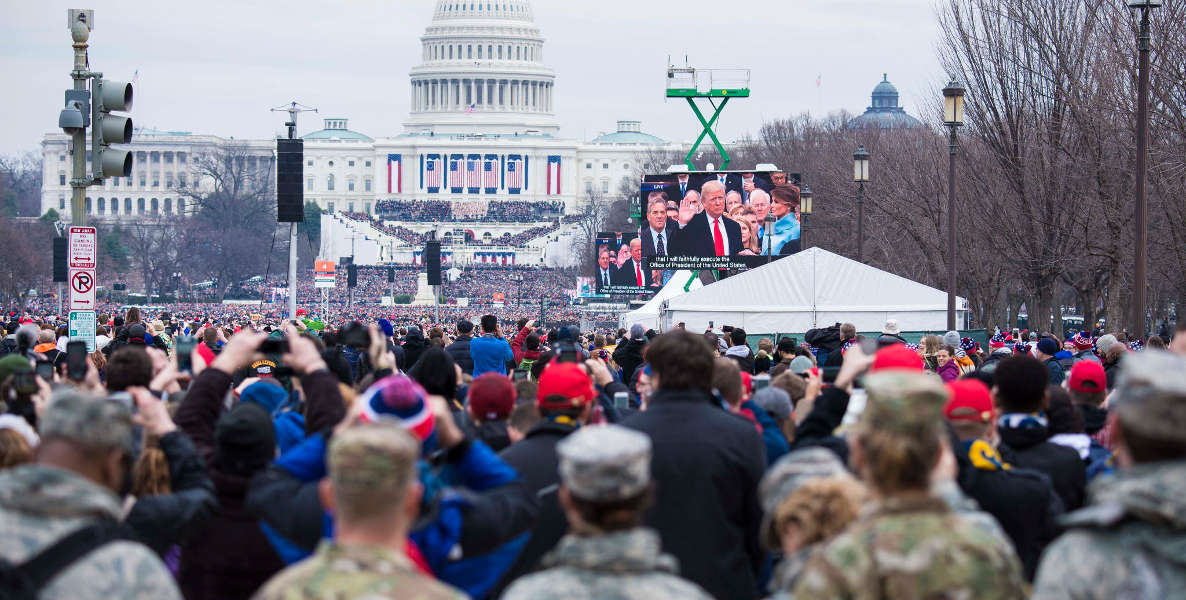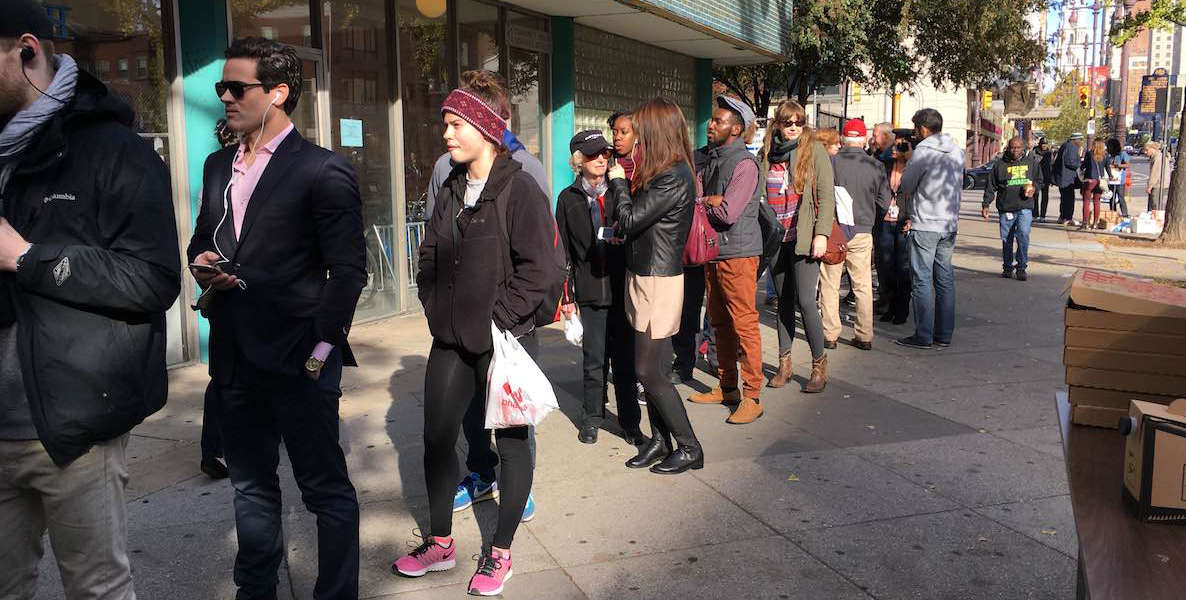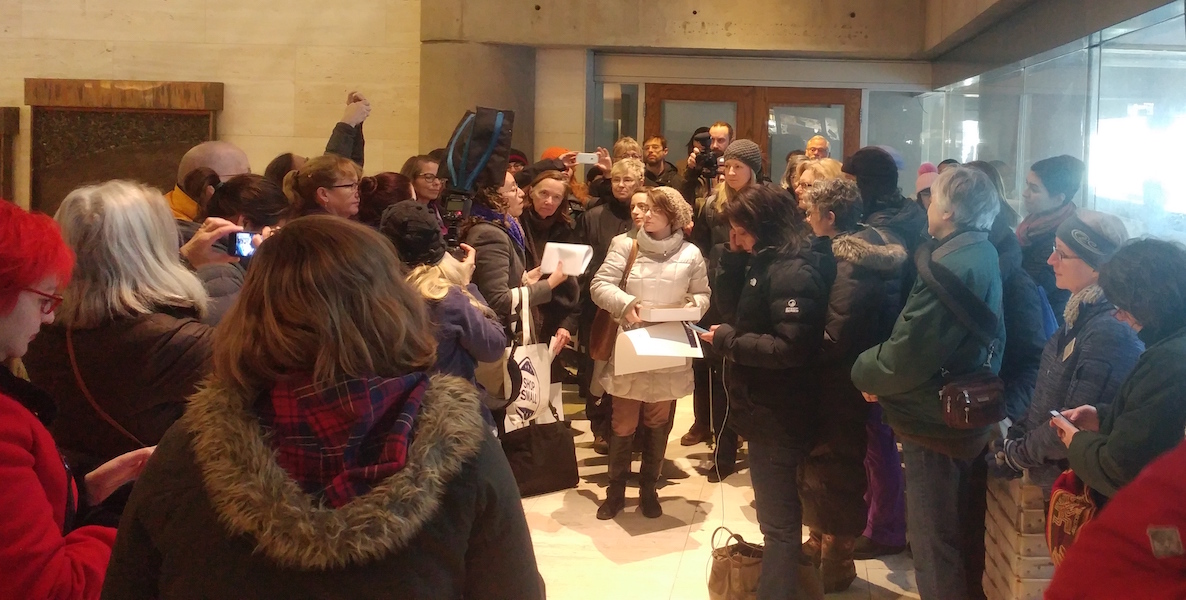It’s become commonplace to observe that post-election America has devolved into a tale of two countries. To speak in gross but reasonably accurate generalities, we’re divided into Trump World versus Urban World. The Trump half of America is rural and exurban. The other half lives in the core cities and their closer-in suburbs. Both sides see the other as an existential threat.
Last week, I posited remaking our City Charter into a moral document, the first of three modest proposals that can hopefully jumpstart a conversation about how Urban World can brace itself for its accelerating crash into Trump World.
Perhaps nothing better captures the progressive, forward-looking orientation of Urban World versus the regressive, backward-facing orientation of Trump World than the fact that, as Mark Muro and Sifan Liu at the Brookings Institution have found, “The less-than-500 counties that Hillary Clinton carried nationwide encompassed a massive 64 percent of America’s economic activity as measured by total output in 2015. By contrast, the more-than-2,600 counties that Donald Trump won generated just 36 percent of the country’s output—just a little more than one-third of the nation’s economic activity.”
Institutions do not change easily. But the city as an institution is also a reflection of our ideals, and the way to affect change is to realign our ideals with our new reality. We need to reconstruct American federalism so that cities take their rightful place alongside states as sovereign powers. The first step, as covered last week, is to create a stronger sense of citizenship based on the unique and fundamental virtues of cities. Next comes a focus on the alliance of our city’s most powerful institutions:
Create Stronger Partnerships Between Cities and Their Universities
Universities are some of the most powerful institutions in cities, especially Rustbelt cities, and so if cities are going to be empowered they need stronger partnerships with universities. Colleges and universities are also the primary vehicles of upward mobility and financial security in our society, and the increasing cost of higher education is one of the central features of both growing economic inequality and the divide between Urban World and Trump World. How to lower the cost of higher education is a topic that is both crucial to the future of American cities and also beyond the scope of this essay. I will, however, suggest a few steps that might begin to make universities slightly more open places, in a way that might also strengthen cities.
Since at least World War II there has been an institutional and functional convergence between cities and their universities, based on their common identities as organizations that do not so much produce any specific thing, as provide an environment that encourages the production of many different things. Both cities and universities engage in similar economic development projects (building stadiums, for instance) and they provide many of the same services, such as police, parks, housing, education, workforce development, and libraries. In fact, university students can be conceived of as city residents who pay a higher level of taxes, in the form of tuition, for a higher level of services, such as better libraries, gyms, parks and landscaping, and a cadre of educators offering classes for their enrichment and professional advancement.
Conceiving of universities as cities also highlights social inequalities. Cities don’t provide university-level services because their populations are simply not wealthy enough to afford the kind of tax rate that a university charges through tuition. Indeed, during budget shortfalls cities tend to cut back on precisely the kinds of services offered by universities, such as libraries. Moreover, universities are able to efficiently provide services because they can screen out residents who have significant problems and who would thus be a drain on their resources. Cities do not have that luxury, and much of their resources have to go to the residents with the biggest problems, who most likely would never get admitted to universities.

If the convergence between universities and cities were pushed a bit further, university services might be made more widely available (extended, for instance, by combining tuition revenues with city tax dollars) and university personnel (administrators, faculty, and students) might be compelled to grapple with, and help find solutions for, issues of inequality that they don’t often come into contact with on campuses.
Another way to rethink the relationship between cities and their universities is to massively expand city government internship programs (that is, programs where students work for free to gain experience and receive college credits) into every city agency and make those internships available only to students at universities and colleges located in the city. In order to find the students for so many internships, all universities and colleges in Philadelphia would have to make city government internships a requirement of their core curriculum.
Requiring every undergraduate student in Philadelphia to work one internship would transform our city government, as it would require that every city agency also have an educational mission. Consider that in fall 2016 approximately 9,000 freshmen started college at just Temple, Penn, and Drexel. If all those students were to have full-time internships in city government (including the school district) at the same time, the combined city and school district workforce would instantly be expanded by approximately 20 percent.
Though internships are ostensibly free labor, they also put a tremendous burden on city agencies, who under the plan above would be constantly training scores of students for jobs that they would quickly leave. In order to make those interns more an asset than a hindrance to city agencies, Philadelphia colleges and universities would have to run pre-requisite courses that would train students for their internships, which would ideally be jointly taught by both faculty and city officials (which would provide those officials some adjunct salary, potentially making them a bit more amenable to this plan).

Get More From Every Story
We include boxes in nearly every story to help you take action. Click the boxes below to see how you can make Philly better.
Given the scope of the program at each school, the coordination challenges of creating different prerequisite courses appropriate for different internships, and staffing those classes with appropriate faculty and city officials, both the pre-requisite courses and internships would have to be administered through new university academic departments that would be important platforms for collaboration between faculty and city officials.
Internships count for college credit because they ostensibly contribute to students’ academic progress, typically achieved through a faculty advisor who provides assignments relevant to the internship and grades the student at the end. A massive scaling-up of city internships would require a somewhat different approach. The city could create a new academic commission, including both city officials and faculty from city colleges and universities, who would oversee the academic progress of student internships and host classes in the city during the time of those internships. Just as the city government internship departments would serve as platforms for collaboration between city officials and faculty at specific schools, so would the academic commission serve as a platform for collaboration between city officials and faculty from all the participating schools.
The appropriate faculty and city officials for serving on the academic commission would be what political scientist Daniel Carpenter has called “mezzo-level” actors—most likely department chairs and associate deans at universities, and directors or deputy commissioners in city government—who are high up enough in their respective bureaucracies that they have comprehensive understandings of how those bureaucracies work, and enough authority to make decisions that can shape those bureaucracies. At the same time, those actors should not be so high up that they will rotate through their jobs quickly, as for instance deans and provosts often do in universities, or department commissioners do in city government. An appropriately staffed academic commission would serve both an oversight function for the city internships, and as a forum where city and university officials could learn from one another, and use that learning to shape their respective institutions.
Requiring every undergraduate student in Philadelphia to work one internship would transform our city government, as it would require that every city agency also have an educational mission. Consider that in fall 2016 approximately 9,000 freshmen started college at just Temple, Penn, and Drexel. If all those students were to have full-time internships at the same time, the combined city and school district workforce would instantly be expanded by approximately 20 percent.
The structure of the system I have sketched out here is hardly novel. It looks, in fact, vaguely like The Harrisburg Internship Semester (which goes by the awkward acronym of THIS), with the major difference being scale. The THIS program hosted twelve interns in 2016; I am proposing that the City of Philadelphia host several thousand all at the same time. THIS is premised on the idea that a few students should get some professional experience and resume-building opportunities in state government. By contrast, my proposed program, by mandating that all college students have internships, would actually devalue those internships as distinctive work experience—but it would begin to reconceive of city governance as a generalized social function for which more people need to take responsibility.
There are likely to be critiques. After all, devoting city resources to college internships would redistribute those resources to an advantaged group, college students, and away from less advantaged groups, such as the majority of city residents. The amount of resources the city would actually devote to a large-scale internship program would depend on the resources universities committed, but it would certainly cost something. At the same time, the extent to which the internships went to college students who could be considered “advantaged” would depend on which colleges were included in the program. If the program were ultimately scaled up even further to include even a portion of the 14,800 full-time students at Philadelphia Community College, or even high school seniors, it would be far less of a program for advantaged students and more of a tool that can help bridge the divide between the haves and have-nots.
Mandatory city government internships for all university and college students would add a large new group to the ongoing collective conversation about the city, and it would most likely change that conversation, hopefully by making it more open to new ideas that challenge our notions of what both cities and universities can and should do together. The specific benefits could be numerous—the program could lead, for instance, to more graduates staying in the city, greater transparency in city decision-making, and maybe even more effective service delivery—but there would undoubtedly be many unintended consequences of both the good and bad variety. This is true of every large social experiment. Like any novel policy it would require effective feedback mechanisms by which its impacts can be measured, and the program adjusted accordingly.
Next week, we’ll examine the ways cities can increase their power by literally growing in size.
Header photo by Jeff Fusco for Visit Philadelphia






